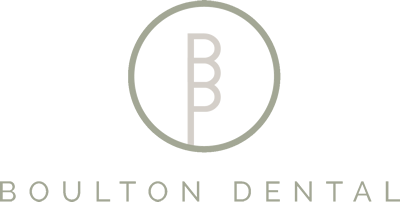The temporomandibular joints are located on each side of your head.
They make it possible to open and close your mouth, and work together when you speak, chew or swallow. These joints also control the lower jaw as it moves forward, backward and side-to-side.
Any problem that prevents this complex system of muscles, ligaments, discs and bones from working properly may result in a painful TMD or temporomandibular disorder.
Risk Factors for TMD/Clenching/Grinding:
- missing teeth
- stress clenching/grinding
- emotional or physical stress
- fractures or dislocations of the TMJ joints
- systemic conditions such as Rheumatoid Arthritis and Osteoarthritis
- wrong shaped dental work, crown/bridge
Signs and Symptoms include:
- restricted jaw movement
- difficulty opening mouth
- locked jaw
- clicking, grating, grinding popping sounds when opening
- pain with chewing, clenching, yawning
- cracked teeth
- pain around the ears and cheeks
- headaches and nausea
- earache, hearing loss and ringing in ears
- face, upper back and shoulder pain
- toothache
- uncomfortable bite
Treatment:
TMJ can be complex and is best treated conservatively. Treatment options include the following:
- Occlusal Appliance: Occlusal (night) splints are made by your dentist and are worn at night. These take pressure off the jaw joints and soften the ‘clench’. These are custom made by us and adjusted accordingly.
- Modified Diet: Eating soft foods and cutting up food into small pieces
- Avoid extreme jaw movements
- Physiotherapy/Osteopathy: Physical treatment to massage trigger points in and around the jaw joint and upper back and neck.
- Hot or Cold packs: to tender areas
- Relaxation and stress management
- Medication: In some cases your dentist may recommend short term medication to relieve your pain.
- Specialist Management: If pain and discomfort is severe and conservative treatment has been ineffective your dentist may refer you to a specialist
OTHER TREATMENT:
BOTOXILIUM:
Muscle Relaxants can be injected into the masseter and temporalis muscles to help reduce the amount of stress or force these muscles can generate.
EXTREME TOOTH WEAR FROM GRINDING:
If grinding continues for years it can severely wear all the enamel away and expose the dentine (which is the softer layer under the enamel) Over time this dentine will wear down, at a faster rate than enamel.
Wear can become so severe that teeth can become very small and even form decay, break and become abscessed.
There are several ways to protect and restore your worn teeth. These include:
- a mouthguard to wear at night time
- placing composite (white) filling veneers over the worn teeth
- placing porcelain crowns or veneers over the worn teeth.
These treatments can be complex and require proper treatment planning. Our dentists at Boulton Dental will be able to provide all necessary treatments to restore your teeth and prevent further wear.

